The 2022 biennial bacterial cell–cell communication meeting will be held at Robinson College in the historic city of Cambridge. The meeting is intended to bring together researchers working on all aspects of bacterial cell–cell communication, with a particular emphasis on showcasing the work of early career researchers. In addition, a stellar line-up of established international leaders in the field will be discussing the very latest developments and insights. Our goal is to achieve a balanced blend of invited and offered talks, poster sessions, and flash posters/talks, giving everyone the opportunity to present their work.
As part of the preparations for returning to delivering in-person events, Microbiology Society Council members and members of the Virus Division have worked with Society staff to develop a framework of mitigations for the Society to apply to all of its events throughout 2022, in order to ensure that these are as COVID-secure as possible.
Implementation of this framework is a shared responsibility; shared between the Society, the venues we use for our events, and all potential attendees. Attendance at any of our events is a personal choice, but it will be incumbent on all of us to deliver these mitigations in order for us to keep all delegates and staff as safe as we can.
The framework covers the following five areas.
The following mitigations will be implemented for all those attending a Focused Meeting in 2022. The Society staff will continue to consult with the organising committee in the lead up to the event and these mitigations will be kept under review and may be amended to ensure they remain appropriate as circumstances change.
Mitigation area
Vaccines
All attendees are required to be fully vaccinated with an approved vaccine against COVID-19 to attend a Focused Meeting in 2022. For many individuals, this will mean a primary course and booster vaccine, and with the booster administered at least 14 days before the meeting. However, if you do not meet this requirement or if you have any concerns around your vaccination status, please get in touch with us to discuss it further by emailing [email protected]
You can find further information on vaccines on the World Health Organization (WHO) COVID-19 vaccine advice page, which includes a list of vaccines that have been approved for use against COVID-19.
Ventilation
Best efforts will be made to promote the circulation of fresh air into each Focused Meeting venue. This will include use of air conditioning, if available at the meeting venue, or opening of doors and windows during appropriate intervals in the event programme if possible.
Masks
FFP3 masks will be provided to all individuals attending a Focused Meeting in 2022 and everyone will be expected to wear them inside the meeting venue, except when eating or drinking and except for those that have medical exemptions.
Testing
Attendees will be provided with LFT devices and are expected to test themselves daily before entering the meeting venue.
Spacing
All attendees are reminded to adhere to social distancing where possible, particularly during communal activities such as lunch and poster sessions.
This year the Microbiology Society celebrates the 75th anniversary of Microbiology, and 75 years of publishing for the community. As part of this celebration, we are pleased to launch the latest in the journal’s series of themed collections. In line with the meeting, guest edited by Martin Welch (University of Cambridge) and Anugraha Mathew (University of Zurich), the ‘Environmental Sensing and Cell–Cell Communication’ collection is now open for submissions. Find out more here.
Chair: Kim Hardie
Chair: Ana Otero
Chair: Paul Williams
Chair: Steve Diggle
Below you will find more information about our invited speakers, who will present their work and research at Cell–Cell Communication in Bacteria: Fundamental and Applied Aspects.
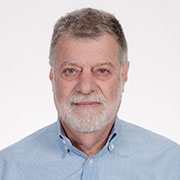
E. Peter Greenberg is a Professor of Microbiology at the University of Washington, USA. He received a BA degree in Biology from Western Washington University, USA in 1970. He obtained a MS degree in Microbiology from the University of Iowa, USA in 1972. He received a PhD degree from the University of Massachusetts, USA in 1977. After postdoctoral work at Harvard University, USA he held faculty positions at Cornell University, USA (1978–1988) and the University of Iowa (1988–2005) prior to joining the faculty in Microbiology at the University of Washington in 2005. He was elected to fellowship in the American Academy of Arts and Sciences in 2004 and the US National Academy of Sciences in 2005. He received the Shaw Prize in Life Sciences together with Dr Bonnie Bassler in 2015 for their fundamental work on bacterial communication.
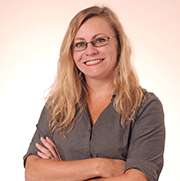
Dr Vanessa Sperandio is the chair of the Department of Medical Microbiology and Immunology at the University of Wisconsin-Madison, USA. She got her bachelor’s, master’s, and PhD at UNICAMP in Brazil, and did her postdoc at the University of Maryland, USA. She was a Latin-American Pew Fellow in Biomedical Sciences, an Ellison Foundation New Scholar, a Burroughs Wellcome Fund Investigator in the Pathogenesis of Infectious Diseases, and a National Academy Kavli Fellow. She received the ASM Eli-Lilly and Company-Elanco Research award, and the GSK-Discovery-Fast-track challenge. She is a fellow of the American Academy of Microbiology. She was a member of the national advisory committee of the Pew Latin-American Fellows Program, and Projeto Serrapilheira in Brazil. She is a member of the advisory committee for the Burroughs Wellcome Fund’s Investigators in the Pathogenesis-of-Infectious Diseases. She serves on the editorial boards of mBio, Infection and Immunity, and Journal of Bacteriology.
Twitter: @VanessaSperand2
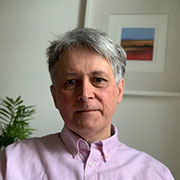
Professor Keith Matthews has provided novel insight into the developmental biology of African trypanosomes, parasites causing human and livestock disease in sub-Saharan Africa. Particularly, he used an innovative genome-wide RNAi screen to dissect how stumpy-forms are generated by quorum-sensing (QS) in the host and extended this work to identify how trypanosome QS operates through parasite-generated oligopeptide signals. He also showed that QS cross-talk can occur between different African trypanosome species in coinfections, with implications for the selection of virulence in co-infecting parasite populations. Keith led the Edinburgh Centre for Immunity, Infection and Evolution from 2011 and directs its Wellcome Trust PhD programme (2016–2026). He was elected Fellow of the Royal Society of Edinburgh (2014), Academy of Medical Sciences (2018), and the Royal Society (2020). He was awarded the British Society for Parasitology Wright medal (2008) and the Sanofi-Institut Pasteur international medal for research excellence in tropical medicine (2015).
Twitter: @KeithRMatthews
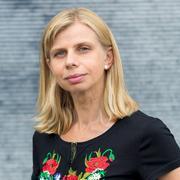
Dr Elena Vikström is an Associate Professor in Medical Microbiology at Linköping University, Sweden. She received her bachelor’s, master’s and PhD degree in Ukraine and did her postdoctoral work in Sweden, and now she joins the Department of Biomedical and Clinical Sciences at Linköping University, Sweden. Using state-of-the-art methodology, Elena provides new insight into host–pathogen interplay with a focus on quorum sensing communication and new aspects of infection and inflammation. Particularly, she showed that bacterial crosstalk via quorum sensing can target and activate host cells in mucosa and change their fitness and function, which opens for a new strategy in prevention of infection and inflammation. Elena teaches courses in undergraduate, graduate, and postgraduate advanced education on topics that include medical microbiology, host–pathogen interactions, scientific approach and research projects. She engages in Bridging Nordic Microscopy Infrastructure Network, National Microscopy Infrastructure and MIMS National Doctoral Programme on Infections and Antibiotics.
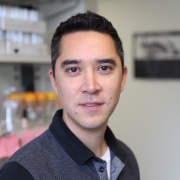
Dr Tim Miyashiro is an Associate Professor of Biochemistry and Molecular Biology at Pennsylvania State University and studies the molecular mechanisms that govern cooperation and conflict among bacteria. His lab uses the symbiosis that is established between the bacterium Vibrio fischeri and the Hawaiian squid Euprymna scolopes as model system for examining bacterial interactions within a natural environment. Using microbial genetics and fluorescence microscopy, his lab has recently discovered that certain strains of V. fischeri express a type 6 secretion system that prevents other strain types from occupying the same site within the host. His lab is funded by the National Institute of General Medical Sciences. He conducted research as a postdoctoral fellow at the University of Wisconsin – Madison. He earned his PhD in Physics at the University of Pennsylvania and BS in Physics at the University of Delaware.
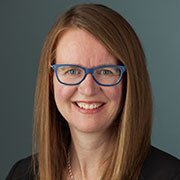
Dr Chandler’s research is focused on bacterial social behaviors such as communication (e.g. quorum sensing), cooperation and competition. Social behaviors shape the function and behavior of microbial communities and are relevant to infections, natural ecosystems and synthetic microbial systems. She studies social interactions in several species of Proteobacteria, including Burkholderia pseudomallei, the causative agent of melioidosis, and Pseudomonas aeruginosa, an opportunistic pathogen and the most common cause of fatality in patients with the genetic disease cystic fibrosis. The lab uses laboratory coculture models, genetics, genomics, microbiology and biochemistry to understand the role of social behavior in complex microbial communities. Dr Chandler is currently an Associate Professor at the University of Kansas in the Department of Molecular Biosciences. Her lab is funded primarily by the NIH and she has also received funding from the NSF and the Cystic Fibrosis Foundation.
Twitter: @ChandlerLab
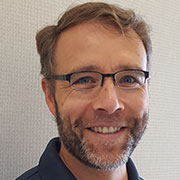
Dr Alexander Horswill obtained his PhD in 2001 from the University of Wisconsin-Madison studying Salmonella short-chain fatty acid metabolism under the direction of Professor Jorge Escalante-Semerena. From 2001-2005, he was a Damon-Runyon post-doctoral fellow in the laboratory of Professor Stephen Benkovic in the Department of Chemistry at Penn State University. In 2005, Dr Horswill joined the Department of Microbiology at the University of Iowa. He started a research program focused on quorum sensing and biofilm development, with the primary target being Staphylococcus aureus. In 2017, Dr Horswill relocated his research group to the University of Colorado Anschutz Medical Campus, and currently he is a Full Professor in the Department of Immunology & Microbiology. His research group has remained focused on S. aureus and investigating how this pathogen can regulate group behavior through sensory mechanisms, and how this coordinated action impacts both colonisation and pathogenesis. He is also investigating how skin commensal bacteria, such as coagulase-negative Staphylococci, can alter S. aureus disease, and more recently polymicrobial interaction mechanisms in wound infections.
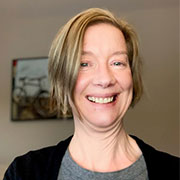
Professor Helen Blackwell is a native of Shaker Heights, Ohio (USA). She attended Oberlin College in Ohio for her undergraduate studies, pursued her graduate studies in organic chemistry at the California Institute of Technology (PhD. with Bob Grubbs) and performed postdoctoral research in chemical biology at Harvard University (with Stuart Schreiber). She has been a faculty member at the University of Wisconsin–Madison since 2002, where she is currently the Norman C. Craig Professor of Chemistry. Helen leads a research program at the interface of organic chemistry and bacteriology. Their broad goal is to use chemical tools to unravel the roles of bacterial cell-cell communication in disease and the environment. Helen and her team have received numerous awards for their research, including a Research Corporation Cottrell Scholar Award, Burroughs Wellcome Fund Investigator Award, Alfred P. Sloan Foundation Fellowship, Camille-Dreyfus Teacher-Scholar Award, and an American Chemical Society Arthur C. Cope Scholar Award.
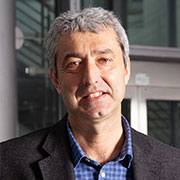
Dr Vittorio Venturi graduated from Edinburgh University, UK in 1988, and received his PhD degree in Microbiology from the University of Utrecht, The Netherlands in 1994. During his PhD research he focused in the regulation of iron-transport processes of beneficial plant associated bacteria which promote plant growth; the monopolisation of iron nearby plant roots is an important trait which keeps microbial pathogens away. He then moved as a postdoctoral fellow to the International Centre for Genetic Engineering & Biotechnology (ICGEB), Trieste, Italy, where he started investigating intercellular signaling among bacteria. He then went on to become Group Leader at ICGEB in 1998, continuing his studies on intercellular signaling. He is now particularly interested in (i) how plant associated bacteria undergo interspecies communication and interkingdom signaling with plants and (ii) plant microbiomes and the development of microbial products for a more sustainable agriculture. Since October 2019, he is also acting as the Scientific Coordinator of ICGEB.
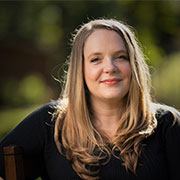
Cassandra Quave, PhD, is the herbarium curator and associate professor of dermatology and human health at Emory University, where she leads anti-infective drug discovery research initiatives and teaches courses on medicinal plants, food, and health. Quave is a fellow of the Explorers Club, a former president of the Society for Economic Botany, and a recipient of the Emory Williams Teaching Award and Charles Heiser Jr. Mentor Award. She is the co-creator and host of Foodie Pharmacology, a podcast dedicated to exploring the links between food and medicine. A leader in the field of medical botany, she has authored more than 100 scientific publications and has been featured in The New York Times Magazine and BBC Focus, as well as on PBS, NPR and the National Geographic Channel. Dr Quave has written opinion essays for The Wall Street Journal and The Conversation, and is author of the acclaimed science memoir, The Plant Hunter: A Scientist’s Quest for Nature’s Next Medicines.
Twitter: @QuaveEthnobot
Instagram: @QuaveEthnobot
TikTok: @Quave_Lab
Facebook: @QuaveMedicineWoman
YouTube: Teach Ethnobotany
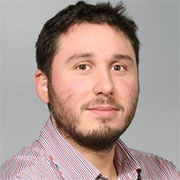
Dr Nicolas Personnic is a CNRS research scientist and group leader. His research has been historically sitting at the interface between microbiology, cell biology, and molecular biology. At the Institut Pasteur of Paris (PhD thesis, Professor Cossart’s lab), the Biozentrum of Basel (Postdoc, Professor Bumann’s lab) and the University of Zürich (SNF-sponsored junior group leader), he has studied various clinically relevant bacterial pathogens to decipher the mechanisms driving infection process and therapeutic failures. His recently-established research group at the Centre International de Recherche en Infectiology (CIRI, Lyon, France) couples infection models, innovative multicolor fluorescent reporters, single-cell technologies, and omics analysis to track, collect and analyse pathogen subpopulations produced within complex environments with a focus on the bacterial persisters – individuals that evade transiently the bactericidal activity of antibiotics by entering a peculiar physiological state.
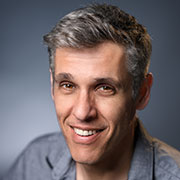
Professor Michael Meijler obtained his MSc degree in Chemistry from the University of Amsterdam and his PhD degree from the Weizmann Institute of Science (with Abraham Shanzer). He then moved to The Scripps Research Institute in La Jolla, California, for postdoctoral studies with Kim Janda. After spending a year as Assistant Professor in the Janda group in 2005, he started his own group at the Department of Chemistry at Ben-Gurion University of the Negev (Be'er Sheva, Israel) in the fall of 2006 and was promoted to Associate Professor in 2011 and Full Professor in 2015. He has served as chair of the Department of Chemistry (2018-2020) and he is the scientific director of the National Institute for Biotechnology in the Negev. His research focuses on how chemical signaling and communication regulates life, cooperation and competition between various living species, including bacteria, and in particular the effects of bacterial signalling on human behavior and plant–bacterial interactions.
Twitter: @MeijlerMichael
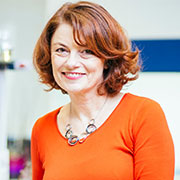
Professor Ines Mandić Mulec is the Head of the Microbiology Department and the Chair of Microbial Ecology and Physiology at the Biotechnical Faculty, University of Ljubljana, Slovenia. She obtained her PhD from the New York University (NYU) and conducted her postdoctoral studies in the USA. She has published over 70 research papers, reviews and book chapters, supervised 11 PhD students and over 60 master students. The research activity of her group focuses on the mechanisms and ecology of bacterial interactions. By investigating group behaviours such as swarming, biofilm development by environmental isolates of Bacillus subtilis, she has contributed to understanding bacterial kin discrimination, quorum sensing, and how bacterial interactions shape horizontal gene transfer. Recently, her group has also been interested in applications of Bacillus strains as probiotics. Hence, she aims to understand mechanisms driving interactions between B. subtilis and pathogens (Campylobacter and Salmonella) and Bacillus-plant interactions.
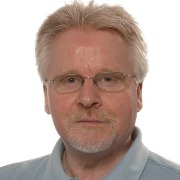
George Salmond is Professor and Director of Research in the Department of Biochemistry at University of Cambridge, UK. After a BSc in microbiology at University of Strathclyde, UK and a PhD in phage-host interactions at University of Warwick, UK he was a postdoctoral researcher on bacterial cell division at University of Edinburgh, UK. He lectured at the University of Kent, UK before returning to Warwick as lecturer, senior lecturer and professor, prior to moving to Cambridge as Professor of Molecular Microbiology.
He is a Fellow of the Royal Society of Biology, the Royal Society of Edinburgh and the American Academy of Microbiology and was awarded the Colworth Prize of the Microbiology Society and the Garrett Memorial Lecture of the British Society of Plant Pathology (BSPP). He served on the Councils of the Microbiology Society and Federation of European Microbiological Societies and was President of the BSPP. His work includes studies on bacterial virulence, protein secretion, antibiotics, phage biology, toxin-antitoxin systems, and quorum sensing.
Abstract submission for the Cell–Cell Communication in Bacteria: Fundamental and Applied Aspects is now closed.
Please prepare your presentation in widescreen (16:9) format for PowerPoint and bring the file to the meeting on USB memory stick or ensure the file is accessible via cloud storage.
A Windows PC will be available. If you wish to present from a Mac, please bring your own device and cable to connect to the projector.
All offered paper presentations are 15 minutes in length. Please check the online programme to find the time that your presentation will be taking place.
For those delivering 15 minute presentations, please prepare a 12 minute presentation and allow 3 minutes for questions.
We have produced a guide on how to give an oral presentation, which can be downloaded below:
Those delivering a flash poster presentation should prepare a 3 minute single-slide PowerPoint presentation and note the technical instructions provided for oral presenters.
Those who are presenting a poster must ensure the work is presented as below.
We have produced a guide on how to give a poster presentation, which can be downloaded below:
Microbiology is pleased to provide the Outstanding Science Prize to a scientific poster at the Cell–Cell Communication in Bacteria: Fundamental and Applied Aspects meeting. The winner, selected by members of the organising committee, will win a cash prize and be featured on the Microbe Post. All posters displayed at the meeting are automatically entered for the prize.
Applications for the Society Conference Grant and Travel Grant to support members attending this Focused Meeting are now closed. Please contact [email protected] for any questions.
As a FEMS Member Society, Meeting Attendance Grants are available to support early career Society members to attend this meeting. Apply by 1 March at 23:59 CET. Please note that this grant is not administered by the Microbiology Society and application queries should be directed to FEMS.
Registration is now closed.
Members get heavily subsidised registration fees for Annual Conference, Focused Meetings and other Society events – both online and in-person. Join now to enjoy these discounts and many other opportunities that are designed for microbiologists at all stages of their career.
Early bird discounted rates close on 9 May 2022 at 23:59.
The deadline to register is 14 June 2022.
|
Ticket |
Early bird |
Full price |
|
Non-member |
£370 |
£420 |
|
Full member |
£270 |
£320 |
|
Concessionary member |
£210 |
£240 |
|
Student member |
£180 |
£230 |
As part of the preparations for returning to delivering in-person events, Microbiology Society Council members and members of the Virus Division have worked with Society staff to develop a framework of mitigations for the Society to apply to all of its events throughout 2022, in order to ensure that these are as COVID-secure as possible.
Implementation of this framework is a shared responsibility; shared between the Society, the venues we use for our events, and all potential attendees. Attendance at any of our events is a personal choice, but it will be incumbent on all of us to deliver these mitigations in order for us to keep all delegates and staff as safe as we can.
The framework covers the following five areas.
The following mitigations will be implemented for all those attending a Focused Meeting in 2022. The Society staff will continue to consult with the organising committee in the lead up to the event and these mitigations will be kept under review and may be amended to ensure they remain appropriate as circumstances change.
Mitigation area
Vaccines
All attendees are required to be fully vaccinated with an approved vaccine against COVID-19 to attend a Focused Meeting in 2022. For many individuals, this will mean a primary course and booster vaccine, and with the booster administered at least 14 days before the meeting. However, if you do not meet this requirement or if you have any concerns around your vaccination status, please get in touch with us to discuss it further by emailing [email protected]
You can find further information on vaccines on the World Health Organization (WHO) COVID-19 vaccine advice page, which includes a list of vaccines that have been approved for use against COVID-19.
Ventilation
Best efforts will be made to promote the circulation of fresh air into each Focused Meeting venue. This will include use of air conditioning, if available at the meeting venue, or opening of doors and windows during appropriate intervals in the event programme if possible.
Masks
FFP3 masks will be provided to all individuals attending a Focused Meeting in 2022 and everyone will be expected to wear them inside the meeting venue, except when eating or drinking and except for those that have medical exemptions.
Testing
Attendees will be provided with LFT devices and are expected to test themselves daily before entering the meeting venue.
Spacing
All attendees are reminded to adhere to social distancing where possible, particularly during communal activities such as lunch and poster sessions.
Upon registration, you should receive an automated confirmation email. Please contact [email protected] if after 24 hours this has not been received.
All registration fees must be paid in full before the start of the event. Any outstanding registration fees must be paid before any joining instructions containing information on how to access the event are sent out.
We are aware of ongoing uncertainty around event attendance as the pandemic continues. In order to give delegates the most confidence and flexibility, we will refund all registration fees in full if you cancel your booking, for whatever reason, at any time in the lead up to the event. If you wish to cancel your booking and request a refund before the event, please email [email protected]
This meeting will take place at Robinson College in Cambridge.
Enter via the Porter’s Lodge Entrance on Grange Road
Robinson College
Grange Road
Cambridge
CB3 9AN
Detailed information can be found at https://www.robinson.cam.ac.uk/conferences/meet/accessibility
The auditorium is fitted with a Hearing Loop - users are advised to select "T" on their ear piece.
The Dining Hall is fitted with an RNID infra-red Sound Advantage system for which delegates will be issued with a neck suspended sensor.
Available as a standard are a Braille version and a Font 16 printed version of our Information for Conference Delegates key card. These are available from the Porter Lodge.
Available as a standard are a Braille version and an enlarged (A3) size version of the College plan for Conference delegates. These are available from the Porters Lodge.
Access to the auditorium foyer and lounge is on the ground floor (level 1) from Front Court. The minimum width of doors is 1m 10.5cm.
Auditorium:
Space is reserved in the front row of the Auditorium for wheelchair users with adjacent seating for Carers. Access is on the lower ground level, via the Seminar Room or direct from the underground car park. Access to the lower ground level (level 0) is by lift from K staircase - off Long Court. The minimum width of staircase doors is 73cm.
Dining Hall (refreshments and posters):
Access is on the lower ground level. Access to the lower ground level (level 0) is by lift from K staircase - off Long Court. The minimum width of doors is 89.5cm.
Toilets:
There are three accessible toilets around the College, two on the ground floor and one on the lower ground floor (level 0).
We have secured a limited number of Single En-Suite rooms at the venue for the nights of 27–30 June 2022. These are available to book directly with Robinson College.
Sponsorship opportunities are available for this meeting.
Please download our exhibitor and sponsor pack to view our options, which suit varying budgets and help create the opportunities you need to connect with new and existing customers. If you have any questions about the packages please email [email protected].

|
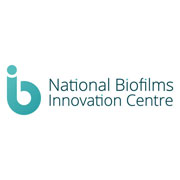
|

|
|

|